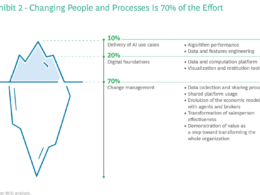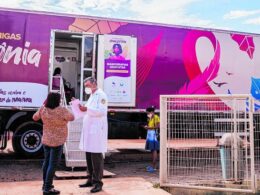Roche
September 27, 2022
Part of the Series:
Planning for the future: a new framework for improving health outcomes worldwide
This is a republication of the article “Singapore: Developing a precision oncology ecosystem enabled by data”
Executive Summary:
Joaquim Cardoso MSc
Health Transformation Institute (HTI)
October 13, 2022
- Singapore has been trailblazing data-driven care models through the digitalization of its healthcare system, with a ground-breaking national electronic medical record system.
- Ensuring patients can fully derive value from these new models will require a concerted effort to develop and implement pathways focused on enabling tailored approaches to cancer care, helping to build a better future for patients across Singapore by improving both health and economic outcomes.
- In 2022, a collaboration between Roche and the Singapore Translational Cancer Consortium (STCC), a nationally coordinated consortium designed to synergise cancer research capabilities, was established to drive adoption of a ‘precision oncology’ care model.
- The aim is to build a healthcare ecosystem focused on personalisation of cancer care enabled by a national clinico-genomic database, with the connected data infrastructure and workflow necessary for long-term sustainability
ORIGINAL PUBLICATION

Singapore has been trailblazing data-driven care models through the digitalization of its healthcare system, with a ground-breaking national electronic medical record system.
Ensuring patients can fully derive value from these new models will require a concerted effort to develop and implement pathways focused on enabling tailored approaches to cancer care, helping to build a better future for patients across Singapore by improving both health and economic outcomes.
In 2022, a collaboration between Roche and the Singapore Translational Cancer Consortium (STCC), a nationally coordinated consortium designed to synergise cancer research capabilities, was established to drive adoption of a ‘precision oncology’ care model.
The aim is to build a healthcare ecosystem focused on personalisation of cancer care enabled by a national clinico-genomic database, with the connected data infrastructure and workflow necessary for long-term sustainability.
With opportunities for both short and long-term economic impact, the partnership has the potential to
- bridge from clinical research to sustainable care delivery,
- achieved through a more efficient and cost-effective approach to generating and analysing data, and
- using that data to improve care delivery.
This, ultimately, could lead to the availability of more personalised medicines, at a lower cost, lending to greater appeal to establish Singapore as an anchor for industry research and innovation.
“Ultimately, by adopting a precision oncology ecosystem in Singapore, we will be able to deliver better cost effective health outcomes by selecting the right treatments for the right patients.” — National University Cancer Institute, Singapore
With this partnership, the STCC in collaboration with Roche aims to position Singapore as a clinical trial hub within Asia-Pacific, using the adoption of a more personalised care model to advance therapeutics and diagnostics in the region.
Across Singapore, more patients suitable for molecularly guided (or ‘targeted’) treatment and clinical trials will be identified using comprehensive genomic profiling and recommendations from Molecular Tumour Boards at each participating hospital.
Real-world evidence will be generated through analysis of data stored in a national clinico-genomic database, which can be leveraged for research and innovation activities, to improve both health and economic outcomes for more sustainable healthcare delivery.
“We are positioning ourselves as leaders in the Asia-Pacific region, able to generate real-world evidence to bring about truly sustainable care delivery.” National University Cancer Institute, Singapore
Originally published at https://www.roche.com.












